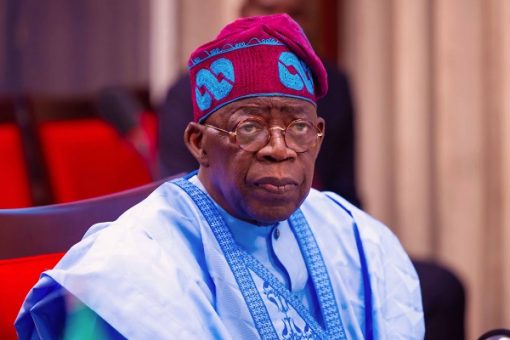Government spending on foreign trips for top officials rose sharply in 2024, with over ₦23 billion spent on foreign currency purchases to facilitate official travel, according to publicly available data from GovSpend, a transparency initiative managed by BudgIT.
The expenditures, which cover travel-related foreign exchange for President Bola Tinubu, Vice President Kashim Shettima, and First Lady Oluremi Tinubu, mark a significant 23% increase from the ₦18.63 billion spent in 2023.
This uptick coincides with a year of more frequent international engagements and rising foreign exchange costs, driven largely by a steep depreciation of the naira against major world currencies.
Breakdown of Key Travel Expenses
One of the more prominent disbursements was ₦1.04 billion for the President’s February visit to Ethiopia. In March, an additional ₦1.27 billion was spent on forex for the presidential air fleet, followed by another ₦5.07 billion in April to support the aircraft’s broader operational requirements.
Vice President Shettima’s travels also contributed significantly. In January alone, ₦426.88 million funded his trip to Switzerland, with another ₦176.77 million spent on his visit to Côte d’Ivoire. His total foreign travel-related forex spend for the year approached ₦750 million.
First Lady Oluremi Tinubu’s trips cost over ₦478 million in foreign currency, with notable expenses including ₦149.79 million for a January trip to France and ₦202.39 million for a March visit to Mozambique.
The Office of the Chief of Staff to the President also made substantial forex purchases—nearly ₦95 million in 2024—supporting official functions such as the President’s UK visit and Nigeria’s participation at the UN General Assembly.
Dollar Figures Reveal Scope of Spending
Further analysis shows that over $1.27 billion was exchanged in just 13 disclosed transactions tied to key international engagements. These included $1.271 billion for the President’s Dubai visit, $483,277 for the VP’s Switzerland trip, and $152,831 for the First Lady’s trip to France.

Other significant purchases included $117,524 for Côte d’Ivoire and $96,118 for Addis Ababa. Some forex expenses were linked to broader activities, such as $1.13 million for participant estacodes for training in the UK and US.
GovSpend data also indicates that not all 43 recorded forex-related transactions had accompanying dollar figures—meaning the actual total may be higher.
Air Travel Expenses Jump 344%
The cost of air travel surged, with the Presidency spending ₦7.83 billion on tickets in 2024—up from ₦1.77 billion the previous year. This represents a 344% increase, largely attributed to heightened diplomatic and official engagements.
A substantial portion of this spending went to preferred contractors, with Hinterland Travel & Tours Ltd receiving large payouts for air tickets. In March alone, the company received payments exceeding ₦490 million. Other agencies such as Travel Options Ltd and Overland Travels also handled government ticketing and logistics.
Expenses extended beyond diplomacy. For instance, ₦5.35 million was allocated for a government official’s trip to Morocco for a seminar on e-procurement, part of an ongoing trend of foreign-funded educational and conference attendance.
Concerns Over Fiscal Priorities and Accountability
The growing cost of official foreign travel has raised concern among civil society groups. The Socio-Economic Rights and Accountability Project (SERAP) and the Accountability Lab Nigeria both called for increased oversight and a re-evaluation of public spending priorities.
Kolawole Oluwadare, Deputy Director of SERAP, criticized the imbalance between recurrent and capital expenditures, pointing out that capital project performance is lagging even as recurrent spending hits full capacity.
“In a time when Nigerians are facing economic hardship, the government must align its actions with the public interest,” he said.
Echoing similar sentiments, Odeh Friday, Country Director of Accountability Lab Nigeria, noted that public trust in government spending is eroding. “When you see billions going to travel while basic services struggle, it signals a deeper problem with how national priorities are set,” he warned.
The Bigger Picture
While international diplomacy remains a necessary function of governance, the steep rise in associated costs raises difficult questions—particularly in a time of inflation, fiscal constraints, and currency instability.
As the government continues to expand its global presence, stakeholders say the critical task ahead is balancing international representation with responsible financial stewardship.



